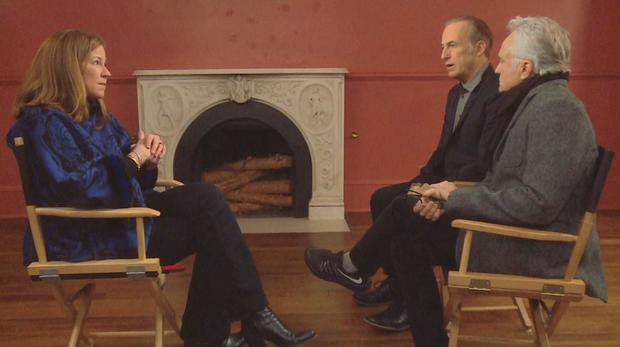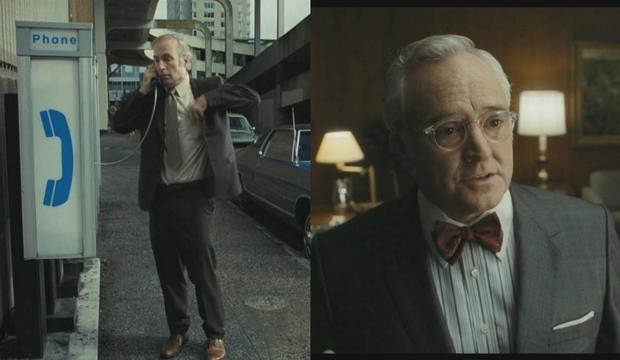"The Post" actors on the power of the press and Katharine Graham's legacy
Much of Steven Spielberg's new historical drama "The Post" takes place at former Washington Post publisher Katharine Graham's Washington D.C. mansion, where she wrestles with topics ranging from women's empowerment to government corruption. The movie, starring Tom Hanks and Meryl Streep, focuses on Graham's struggle over whether to publish classified documents about the Vietnam War.
CBS News' Jan Crawford visited Graham's former Georgetown home with two of the film's co-stars, Bob Odenkirk and Bradley Whitford, who portray men on opposing sides of Graham's struggle. They hope it's her personal journey that viewers find most inspiring.
The documents, published in both the New York Times and the Washington Post, exposed the truth about Vietnam despite a legal threat from the Nixon administration. The story transformed the Post and its female publisher into journalistic icons. "The Post" reveals unsung heroes and the powerful pressures on the legendary publisher with a message that resonates today.
"It's about a lot of things. About women, about what's going on with the press, about our need to be vigilant. That you gotta make a democracy every day, you don't just get it," Whitford said. "But Steven Spielberg doesn't – has no interest in serving civic vegetables. That's not what Steven Spielberg is all about."
At its heart, "The Post" is about a woman who finds her voice and changes the course of history when she decides the Washington Post – risking financial ruin – would print the story of the Pentagon Papers.
Streep plays Graham in the movie, and on "CBS This Morning" she talked about the unique role as a woman in charge.
"It came down to her to decide and she felt alone in that position and was, you know, put on the spot," Streep said.
Graham's historic home in the Georgetown neighborhood of Washington D.C. remains vacant and largely unchanged since she died more than 15 years ago.
"The emotional thrust of this story is Katharine Graham's journey, internal journey, and then this other stuff is just a fun suspense thriller that is about relevant issues," Odenkirk said. "To me, it's a nonpartisan film. I don't see why any Republican wouldn't like this movie. Except if they love Nixon."
The movie blends historical news reports and telephone recordings of President Richard Nixon with portrayals of the people behind the Washington Post's stories – like reporter Ben Bagdikian, an outspoken critic of the Nixon administration's attacks on the media. He helped track down the classified documents.
"I'm proudest of just showing a bunch of professional journalists at work arguing and fighting and trying to figure out what they have a right to do and what's right," said Odenkirk, who plays Bagdikian. "My character is the true believer, the reporter who just wants the story and just wants to tell the public the story."
"If you have the truth, you should print it. And that's an easy, strong opinion to have when you don't have the responsibility of actually keeping the paper alive and you're not the one who will go to jail," he said.
Facing a possible criminal contempt of court charge, Graham chose to stand up to the government and to forces within her own industry. Washington Post board member Arthur Parsons, played by Whitford in the film, felt she was unqualified to be publisher because she was a woman.
"It never occurs to my character that a woman should be able to do this," Whitford said. "I'm absolutely on the wrong side, totally wrong side of history which makes her decision ... all the more incredible and brave."
"It's the most excruciating decision that she has to make. … And she doesn't know – you don't know if that's the right decision," Whitford said.
Not only was it the right decision, but it transformed Graham into a woman to be reckoned with, and the Washington Post into a national newspaper. And the lesson of the Pentagon Papers for the public is that there is a right to question the government and to be told the truth.







